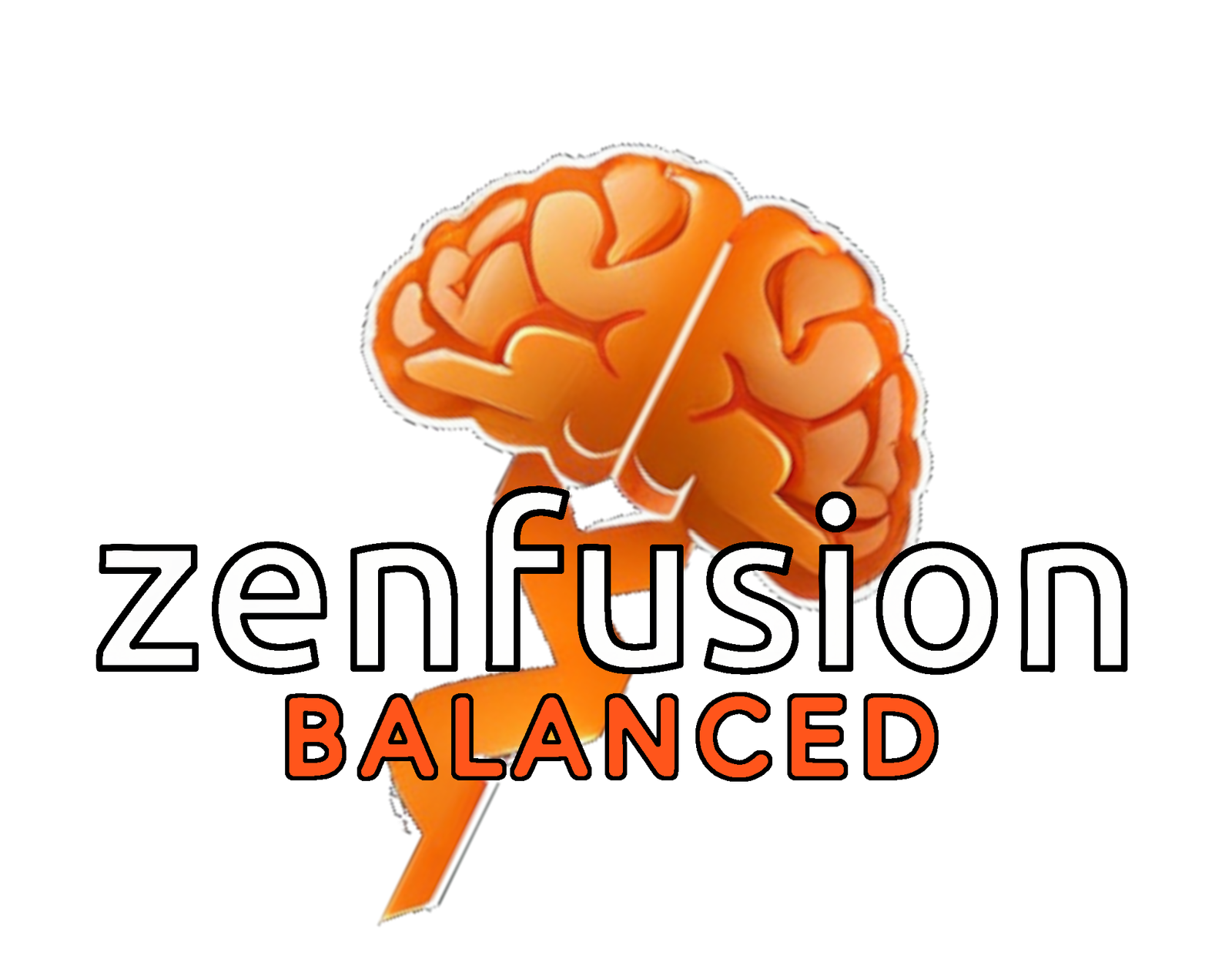
Introduction: A New Star in Mental Health Treatment
The landscape of mental health treatment is witnessing a revolutionary shift with the re-emergence of psychedelic substances, particularly psilocybin. As traditional therapies often fall short for individuals grappling with treatment-resistant depression (TRD), psilocybin is gaining traction as a beacon of hope. This naturally occurring compound, found in certain species of mushrooms, has captured the attention of researchers and practitioners alike, signaling a potential breakthrough in addressing the complexities of TRD.
Renewed interest in psilocybin stems from a mounting body of research that highlights its promising therapeutic effects. Studies conducted over the past decade have demonstrated that psilocybin, when administered in controlled clinical settings, can catalyze profound changes in mood, perception, and overall mental well-being. These findings are paving the way for a new paradigm in mental health treatment, where the focus shifts from symptom management to addressing the root causes of psychological distress.
The resurgence of psilocybin in scientific inquiry has also sparked a broader dialogue about the role of psychedelics in mental health. Historically, these substances were stigmatized and relegated to the fringes of medical research. However, contemporary studies are shedding light on their potential to facilitate deep psychological healing, especially for those who have exhausted conventional treatment options. This shift is not only changing perceptions but also encouraging further exploration into the therapeutic potential of psilocybin and similar compounds.
As we delve deeper into the potential of psilocybin for treatment-resistant depression, it is essential to consider the rigorous scientific efforts driving this renaissance. The integration of psilocybin into clinical practice could potentially transform the lives of countless individuals struggling with TRD, offering a glimmer of hope where traditional treatments have faltered. This introduction sets the stage for a comprehensive examination of psilocybin’s role in mental health, underscoring the importance of continued research and open-mindedness in the quest for effective treatments.
Understanding Treatment-Resistant Depression
Treatment-resistant depression (TRD) is a severe form of depression that persists despite the use of standard treatments, including antidepressants and psychotherapy. This type of depression poses significant challenges for both patients and healthcare providers, creating a complex clinical scenario that is difficult to manage. Understanding the nature of TRD is crucial for developing more effective therapeutic strategies and providing better support for those affected.
Typically, depression is treated through a combination of medications such as selective serotonin reuptake inhibitors (SSRIs) and various forms of psychotherapy, including cognitive-behavioral therapy (CBT) and interpersonal therapy (IPT). However, for individuals with treatment-resistant depression, these conventional methods often fail to produce the desired outcomes. Patients may experience little to no improvement, even after trying multiple medications and therapeutic approaches. This lack of efficacy can be attributed to various factors, including genetic predispositions, underlying medical conditions, and the complexity of the individual’s mental health status.
The persistence of depressive symptoms despite treatment can lead to a profound sense of hopelessness and frustration. Patients with TRD often endure a diminished quality of life, struggling with daily activities, relationships, and maintaining employment. The emotional burden can be overwhelming, exacerbating feelings of isolation and despair. These challenges highlight the urgent need for innovative treatments that can address the unique needs of those with TRD.
Healthcare providers face their own set of challenges when treating TRD. The trial-and-error process of finding an effective treatment can be time-consuming and disheartening. It requires a deep understanding of the patient’s history, a willingness to explore alternative therapies, and a commitment to providing continuous support. The complexity of TRD underscores the importance of ongoing research and the development of new, more effective treatment modalities.
The Introduction of Psilocybin
Psilocybin, a naturally occurring psychedelic compound, has garnered considerable attention in recent years for its potential therapeutic benefits, particularly in addressing treatment-resistant depression. This compound is found in over 200 species of mushrooms, commonly referred to as “magic mushrooms.” Historically, psilocybin has been used for centuries by indigenous cultures in spiritual and healing rituals. The Mazatec people of Mexico, for example, have long utilized these mushrooms in shamanistic practices, believing them to possess profound spiritual significance.
The Western world first encountered psilocybin in the mid-20th century, when ethnomycologist R. Gordon Wasson and his wife Valentina participated in a Mazatec mushroom ceremony. Their experiences were subsequently published in a 1957 Life magazine article, which ignited a surge of interest and research into psychedelic substances. Psilocybin was subsequently isolated and synthesized by Swiss chemist Albert Hofmann, who is also known for discovering LSD.
Despite initial enthusiasm, psilocybin, like other psychedelics, became embroiled in the counterculture movements of the 1960s and was subsequently classified as a Schedule I substance under the Controlled Substances Act. This classification significantly hindered scientific research for decades. However, in recent years, a resurgence of interest has emerged, driven by a growing body of evidence suggesting that psilocybin could offer substantial therapeutic benefits, especially for individuals with depression that has proven resistant to conventional treatments.
Modern scientific research has begun to explore psilocybin’s potential in a controlled and clinical setting. Studies have indicated that psilocybin may help alleviate symptoms of anxiety, depression, and PTSD by promoting neural connectivity and fostering a sense of emotional openness and introspection. This renewed interest is part of a broader movement to reexamine the therapeutic applications of psychedelics, shedding light on psilocybin’s potential to revolutionize mental health treatment.
Scientific Evidence: Studies and Trials
Recent scientific research has brought to light the potential of psilocybin as a novel intervention for treatment-resistant depression (TRD). Among the key studies, phase 2 clinical trials have yielded particularly compelling results. These studies have demonstrated significant reductions in depression scores among participants who received psilocybin, compared to those who were administered a placebo.
One landmark study conducted by the Imperial College London involved participants with long-standing TRD who had not responded to conventional treatments. The trial administered two doses of psilocybin, 10 mg and 25 mg, spaced one week apart. Findings revealed a marked decrease in depression severity, as measured by the Quick Inventory of Depressive Symptomatology (QIDS), with some participants experiencing sustained relief for up to six months post-treatment.
Another pivotal trial, led by researchers at Johns Hopkins University, also investigated psilocybin’s impact on TRD. Participants received a single high dose of psilocybin, which led to a rapid and substantial reduction in their depressive symptoms. The study utilized the Montgomery-Åsberg Depression Rating Scale (MADRS) to quantify improvements, showing that a significant proportion of participants achieved remission within a week of the treatment.
The effectiveness of psilocybin is further amplified when combined with psychological support. Both the Imperial College and Johns Hopkins trials incorporated structured psychological support sessions before, during, and after psilocybin administration. This integrative approach appears to enhance the therapeutic outcomes, providing a supportive framework that helps participants process their experiences and integrate them into their daily lives.
Overall, the scientific evidence underscores psilocybin’s promise as a breakthrough treatment for TRD. These studies highlight not only the potential of psilocybin to alleviate depressive symptoms but also the critical role of psychological support in maximizing its therapeutic benefits. As research progresses, the hope is that psilocybin could become a viable option for those grappling with the challenges of treatment-resistant depression.
Mechanisms of Action: How Does Psilocybin Work?
Psilocybin, a naturally occurring psychedelic compound found in certain species of mushrooms, has garnered substantial interest for its potential in treating treatment-resistant depression. Understanding psilocybin’s mechanisms of action is fundamental to appreciating how it may offer hope to those whose depression has not responded to conventional treatments.
Upon ingestion, psilocybin is metabolized into psilocin, which then interacts with serotonin receptors in the brain, particularly the 5-HT2A receptor. This interaction is pivotal as it leads to increased brain connectivity, allowing various brain regions to communicate more freely with each other. Enhanced connectivity fosters a more flexible and integrative cognitive state, which can be especially therapeutic for individuals suffering from rigid, negative thinking patterns associated with depression.
Moreover, psilocybin has been shown to dampen the activity of the brain’s default mode network (DMN), a network that is often overactive in those with depression. The DMN is involved in self-referential thought processes and rumination, which are hallmark features of depressive disorders. By quieting the DMN, psilocybin can help reduce these maladaptive thought patterns, promoting emotional openness and a more profound connection to the present moment.
Participants in clinical trials have reported transformative experiences under the influence of psilocybin. Many describe a heightened sense of emotional clarity, an ability to confront and process deep-seated traumas, and a renewed sense of purpose and connection. These experiences are often accompanied by lasting changes in mood and outlook, extending well beyond the immediate effects of the compound.
For instance, one participant noted, “It was like a veil had been lifted. I could see my life and my struggles from a new perspective, which allowed me to start healing.” Such anecdotal reports align with the scientific findings, suggesting that psilocybin can facilitate profound and lasting psychological growth.
In summary, the unique mechanisms of action of psilocybin, including increased brain connectivity and emotional openness, alongside the dampening of the default mode network, offer promising avenues for treating treatment-resistant depression. The combination of scientific evidence and personal testimonials underscores the potential of psilocybin to bring about meaningful and enduring changes in mental health.
The exploration of psilocybin as a potential treatment for treatment-resistant depression has reached a pivotal juncture. Current research, though promising, is still in its nascent stages. Preliminary studies have shown that psilocybin can yield significant improvements in depressive symptoms, especially in patients who have not responded to conventional therapies. However, the small scale and short duration of these studies necessitate further investigation to substantiate these findings.
Looking forward, the primary challenge lies in conducting larger, long-term clinical trials. These studies are essential to comprehensively understand the efficacy and safety profile of psilocybin. The complexity of mental health conditions and the variability in individual responses to psychedelic treatment make it imperative to gather extensive data. Only through robust and well-designed research can the medical community develop standardized treatment protocols and guidelines for psilocybin use in clinical settings.
Another critical aspect of the journey ahead is navigating the regulatory landscape. Currently, psilocybin is classified as a Schedule I substance in many jurisdictions, including the United States. This classification denotes a high potential for abuse and no accepted medical use, posing significant barriers to research and clinical application. However, as evidence supporting the therapeutic benefits of psilocybin accumulates, there is potential for regulatory re-evaluation. Proponents argue that reclassifying psilocybin could facilitate more extensive research and ultimately, broader accessibility for those in need.
The importance of continued research cannot be overstated. Beyond clinical efficacy and safety, future studies should also focus on understanding the mechanisms by which psilocybin exerts its effects. This knowledge could pave the way for the development of novel therapeutic approaches and possibly, new classes of antidepressants. Additionally, investigating the long-term impacts of psilocybin treatment, including potential risks and benefits, will be crucial in ensuring its safe integration into mental health care.
In conclusion, while the road ahead for psilocybin research is fraught with challenges, the potential rewards are substantial. With concerted effort and collaboration among researchers, clinicians, and policymakers, psilocybin could represent a groundbreaking advancement in the treatment of treatment-resistant depression.
A Word of Caution
While the therapeutic potential of psilocybin in addressing treatment-resistant depression has garnered considerable attention, it is imperative to approach this subject with caution. Psilocybin remains a controlled substance in many regions worldwide, meaning its use is heavily regulated and, in some places, outright illegal. Engaging in unsupervised consumption of psilocybin poses significant risks, both legally and health-wise.
One of the critical concerns associated with unsupervised psilocybin use is the lack of a controlled, supportive environment. Clinical studies emphasize the necessity of a structured setting where patients are closely monitored by healthcare professionals. This controlled setting provides a safety net, ensuring that any adverse reactions can be promptly addressed. Outside of these settings, individuals are more vulnerable to negative experiences, such as acute anxiety, paranoia, or even psychological distress that can exacerbate their condition.
Moreover, the therapeutic benefits of psilocybin are closely linked to the presence of trained facilitators who guide the patient’s experience. These professionals utilize specific protocols to create a supportive atmosphere, which is crucial for maximizing the positive outcomes of psilocybin therapy. Attempting to replicate these conditions independently is not only challenging but also potentially dangerous. The absence of professional guidance can lead to unpredictable outcomes, undermining the potential benefits that psilocybin may offer.
It is also worth noting that psilocybin can interact with other medications and underlying health conditions in ways that are not yet fully understood. This further underscores the importance of medical supervision. Self-medicating with psilocybin without a thorough understanding of its interactions and contraindications can lead to unforeseen complications.
In conclusion, while psilocybin shows promise as a treatment option for those battling treatment-resistant depression, it should be approached with great care. The importance of a controlled, supportive environment cannot be overstated, and unsupervised use carries significant risks. For those considering psilocybin therapy, it is essential to do so within the framework of a clinical trial or under the supervision of qualified healthcare professionals.
Conclusion: A Glimmer of Hope
Psilocybin represents a promising frontier for those grappling with treatment-resistant depression (TRD). As conventional treatments often fail to provide relief for many individuals, the emergence of psilocybin as a potential therapeutic option brings a renewed sense of optimism. The growing body of research highlights not only its efficacy but also its potential to offer long-lasting benefits, thereby fostering hope among patients and healthcare providers alike.
While the initial findings are encouraging, it is crucial to maintain a balanced perspective. The scientific community continues to explore and validate the therapeutic potential of psilocybin through rigorous clinical trials and research. Staying informed about these developments is essential for both patients and practitioners, ensuring that new treatments are integrated responsibly and effectively into standard care protocols.
Moreover, the potential of psilocybin extends beyond its clinical efficacy. It also challenges the stigma associated with psychedelic substances, fostering a broader understanding and acceptance of alternative mental health therapies. This paradigm shift could pave the way for more holistic and compassionate approaches to mental health care, benefiting a wider spectrum of individuals who suffer from various forms of depression.
However, it is paramount to approach psilocybin treatment with caution. Readers are strongly advised to consult healthcare professionals before considering any new treatment options. Psilocybin administration should be conducted under professional supervision within a controlled environment, ensuring safety and maximizing therapeutic outcomes.
In conclusion, psilocybin offers a glimmer of hope for those battling treatment-resistant depression. As research progresses, it is imperative to remain open to innovative treatments while prioritizing informed and responsible decision-making. By doing so, we can collectively work towards alleviating the burden of TRD and enhancing the quality of life for those affected.









